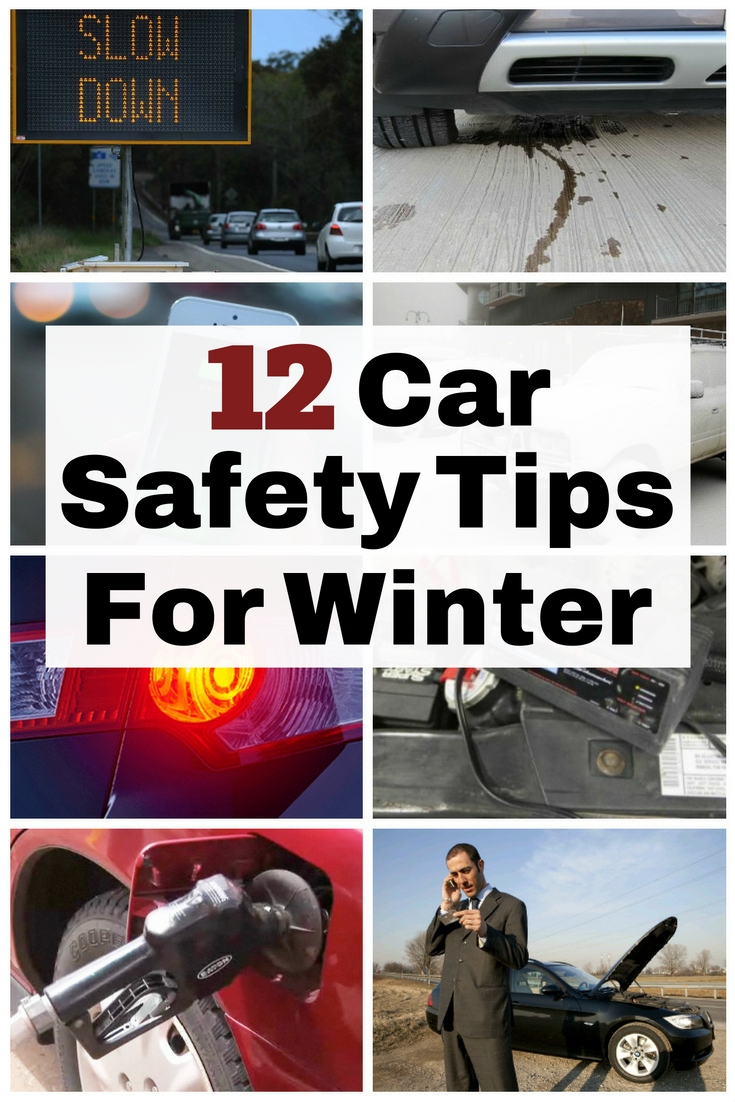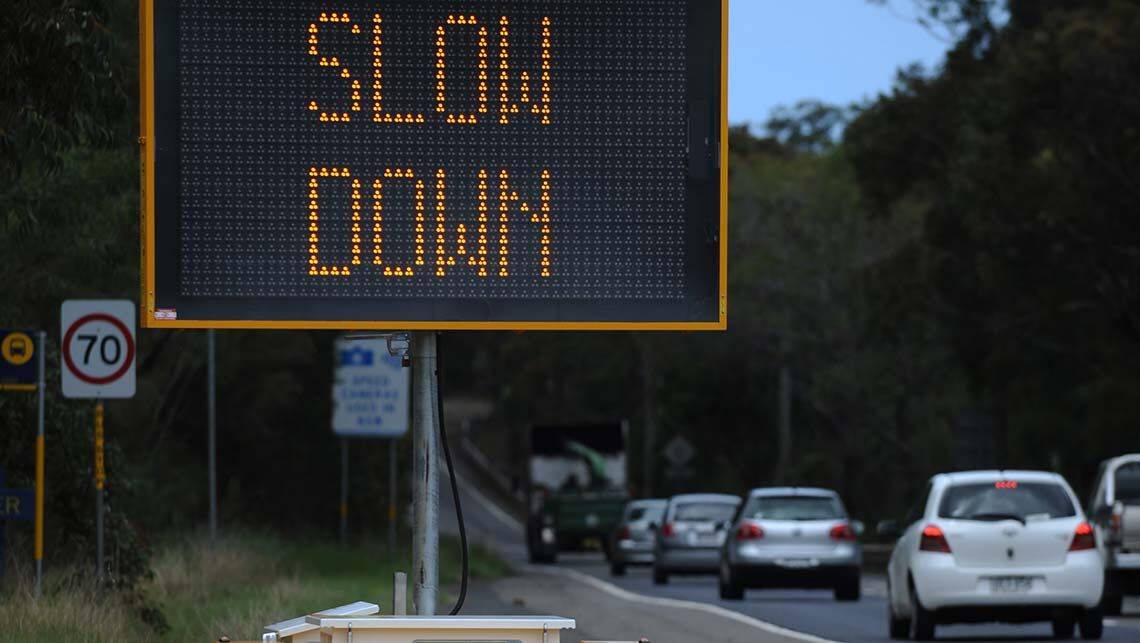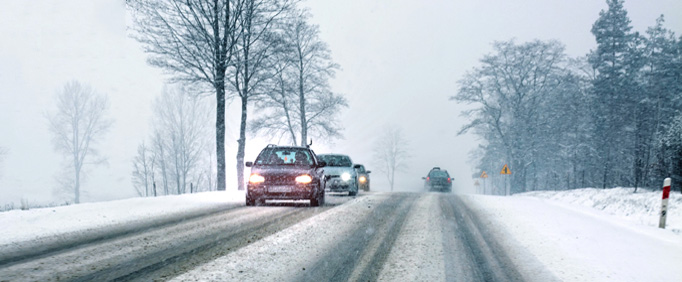 Winter is almost upon us, and with it, the numerous hassles and dangers associated with cold weather. We have to deal with ice on windshields, cold seats, icy roads, and more. I want to make sure my vehicle is ready before that first cold snap. Being a frugal person, I looked for the most affordable things I could do to ensure my car is safe for my family this winter. Here are the best safety tips I found. The best part? Some are even free!
Winter is almost upon us, and with it, the numerous hassles and dangers associated with cold weather. We have to deal with ice on windshields, cold seats, icy roads, and more. I want to make sure my vehicle is ready before that first cold snap. Being a frugal person, I looked for the most affordable things I could do to ensure my car is safe for my family this winter. Here are the best safety tips I found. The best part? Some are even free!
-
Check your tires.
I came out of my house one morning to warm my van up and found, to my surprise and panic, that one of my tires had popped off the rim. It was New Year's Eve and about ten below outside. My tires had needed replacing, but I hadn't done it yet. Several hundred dollars in tow truck and new tire costs later, I never made that mistake again. Here are a few of their tips.
- Check your tire tread using a penny. Place the top of Lincoln's head into one of the grooves of your tire. If any part of his head is obscured, your tires are safe.
- Keep your tires properly pressurized. They lose about 1 pound for every ten-degree temperature drop. Proper inflation can even save you money at the gas pump.
-
Make sure your battery is good to go.

Image source: roadandtrack.com A dead battery is never fun, but it can be a downright emergency in the middle of winter.
- Although it can be an expense initially, buying a decent battery charger will save you money over time.
- There's the free option of removing your battery and bringing it inside when you are not using your vehicle to prevent the cold from draining it. Be sure to store it properly.
-
Check for leaks.
Leaks can cause a lot of problems for your vehicle and thus your budget. Exhaust leaks not only decrease the fuel efficiency of your car, they can also cause poisonous fumes to leak into the cab of your vehicle.
-
Check all your lights.
Visibility in winter is absolutely terrible, especially during the kind of weather that might leave you stranded. I always knew to keep my headlights clean for optimal visibility during these months. The rear lights and the hazard lights should all be checked as well.
-
Keep the gas tank filled.
Keep your gas tank at least half full. Also, use a bottle fuel deicer about once a month to keep moisture from freezing your fuel lines.
-
Consider roadside assistance membership.
When I first became interested in pursuing a frugal lifestyle, I made the mistake of ignoring ideas that had large start-up costs but would save money in the long run. “Why bother doing this,” I thought, “when I can take the $100 it's going to cost me and save it for a rainy day?” I know better now, which brings me to this tip. Though the initial fee and monthly costs associated may seem to make little sense up front, roadside assistance memberships may save you a bundle. You can avoid exorbitant towing fees, for example. Ask your dealership or even your employer if they offer deals for roadside assistance packages.
-
Feel the need to reduce your speed.

Image source: carsguide.com.au I can't stress this enough: You can't drive at normal speeds on icy roads. Posted speed limit signs are meant for roads in the best conditions; winter roads do not qualify. Please slow down.
-
Keep your phone battery charged.
In the event of an emergency, you'll want to be able to call 911 or other emergency assistance. Your phone's battery is likely to lose its charge faster in the cold. Recharging it when reaches 50 per cent is a move that may really help you out in a tight spot this winter.
-
To warm or not to warm?

Image source: popularmechanics.com The common wisdom has always been to warm your car up before driving. Supposedly, this keeps the engine healthy. Not true! Bundle up instead and save yourself fuel and potential engine repair costs.
-
Share your travel plans.

Image source: mts.ca Anytime the weather is inclement or the roads dangerous, the CDC says to make sure you tell a friend or family member about your travel plans and any changes that occur. This way, if something happens to you, someone knows to look for you. Rescue personnel would know the best starting point in case you need assistance.
-
Stranded? Stay put!

Image source: exchange.aaa.com Nothing is scarier than finding yourself stranded in the dead of winter, with a vehicle that won't operate and no one around for miles. Although you may be tempted to begin a hike to the nearest gas station to search for help, it's easy to become lost when out of sight of your car.
-
Store an emergency kit in your car.
Should you find yourself stranded as in the scenario above, an emergency survival kit would be a literal lifesaver.
- a shovel, windshield scraper, and small broom
- a flashlight, battery-operated radio, and extra batteries
- water and snacks, both of which can be purchased at very affordable prices from the local dollar store
As unpredictable as the roads can be in the winter time, keeping your car in good condition is an absolute must. I hope these tips keep you and your family safe while traveling this winter.



